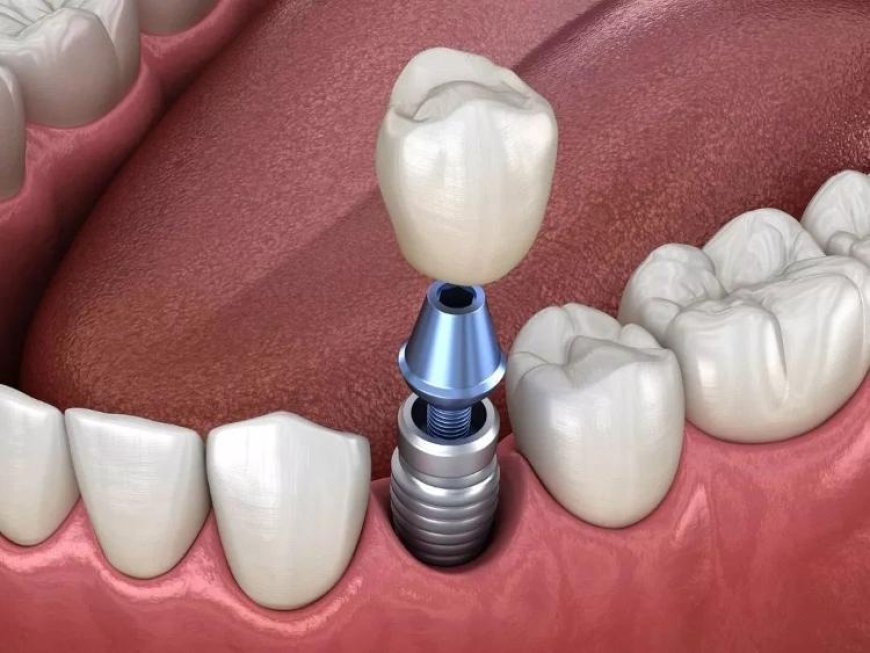Dental Implant Surgery: Criteria, Contraindications, and Process
With advancements in various oral implantation techniques, bone grafting materials, the perfection of implant systems, and the development of imaging and digital technologies, dental implants have become a feasible solution for single-tooth loss, multiple teeth loss, and even edentulism. The current state of dental implant technology allows for a wide range of restorative treatments.

With advancements in various oral implantation techniques, bone grafting materials, the perfection of implant systems, and the development of imaging and digital technologies, dental implants have become a feasible solution for single-tooth loss, multiple teeth loss, and even edentulism. The current state of dental implant technology allows for a wide range of restorative treatments.
However, not everyone is a suitable candidate for dental implants. Individuals with poor health, significant endocrine and metabolic disorders like uncontrolled diabetes, hematologic diseases such as erythrocytic or leukocytic disorders, coagulation abnormalities, cardiovascular diseases that preclude surgery, long-term medication that affects coagulation or tissue healing, severe systemic autoimmune diseases, excessive smokers or drinkers, those with neurological or psychiatric disorders, pregnant women, and patients with certain oral and maxillofacial conditions are generally advised against this procedure.
Preparatory steps for dental implant surgery include: The procedure can be performed in an outpatient surgical room by an experienced and skilled surgeon, ensuring minimal discomfort and a short surgery time, allowing patients to return home for rest the same day. It is advisable to bring previous dentures and pre-tooth loss photographs to assist the restorative dentist in creating a natural and realistic implant.
Optimal health is crucial for implant surgery. Patients with mild hypertension should have normalized blood pressure, diabetics should have controlled blood sugar levels, and women should avoid the menstrual period for surgery. Oral hygiene is essential, and any dental cleaning or treatment for oral inflammations and diseases should be completed beforehand.
For anterior tooth loss, it is recommended to wear a temporary removable denture for over a month before implant surgery. This helps in adapting to the denture during the interim period from the first to the second stage of surgery (before the implant prosthesis is fitted). If tooth extraction or alveolar surgery is required, it is advisable to wait three months for bone healing and satisfactory X-ray results before considering implant surgery.
The dental implant surgery process involves several steps: clinical and radiographic examination, diagnosis and treatment planning, surgical procedure, prosthetic fabrication and restoration, and maintenance of the implant and the restoration. Depending on the timing of implant placement relative to tooth extraction, implant surgeries can be categorized as immediate, early (within three months post-extraction), or delayed (beyond three months post-extraction).
The implant restoration process can be divided based on the timing of prosthetic loading relative to implant placement: immediate loading, early loading, and delayed loading. As oral implantology evolves, the treatment duration is notably reducing. The possibility of immediate prosthetic fitting post-implant placement, or even immediately after tooth extraction, is becoming more feasible.
In conclusion, dental implants offer a sophisticated solution for replacing missing teeth. The suitability for this procedure depends on various health factors, and the process involves careful planning and skilled execution. With ongoing advancements, the efficiency and immediacy of implant treatments are continually improving, making it a more accessible option for many patients.
What's Your Reaction?




























:quality(85):upscale()/2024/01/25/878/n/1922153/f94f61ec65b2bf18018990.47538761_.jpg)

:quality(85):upscale()/2024/01/26/751/n/1922153/6bd241b765b3e57a0c5559.91495665_.png)
:quality(85):upscale()/2024/01/26/759/n/29590734/b7f6660b65b3e8460d7196.77057039_.jpg)













